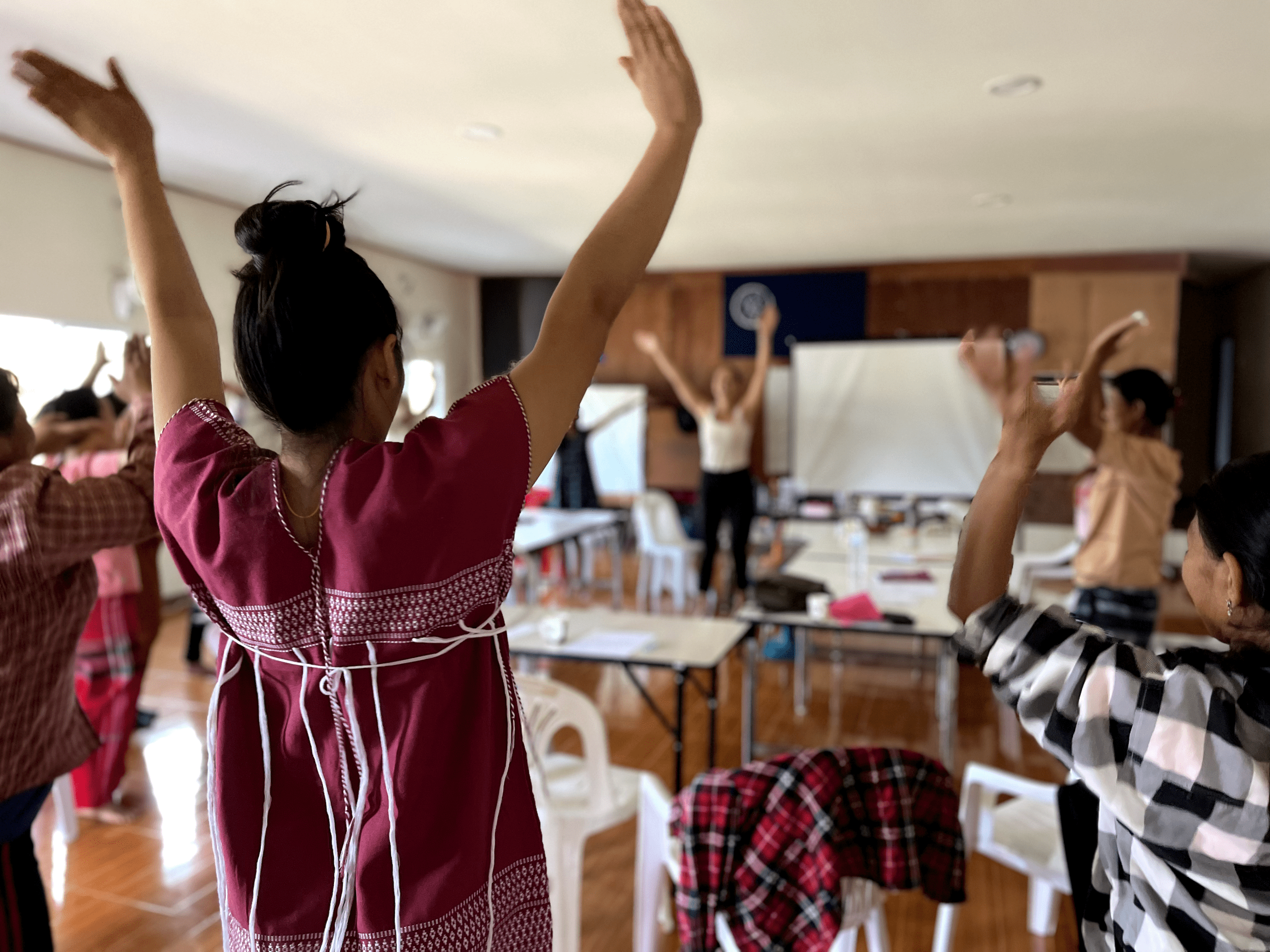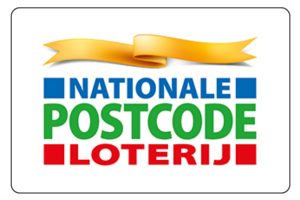March 20, 2025
Supporting survivors of conflict-related sexual violence in Myanmar
Survivors of conflict-related sexual violence speak out
“A network is essential because together our voices are stronger.”- shares a member of USILA, a survivor network in Cox’s Bazar
In 2024, the Mukwege Foundation held five workshops in Bangladesh and Thailand to support survivors of sexual violence from Myanmar —living now as refugees— establish three networks.
For most survivors, these workshops marked their first time meeting one another, providing a safe space to build trust, define objectives, and set the groundwork for their joint activities. While each network is distinct—uniting survivors from diverse ethnic backgrounds, languages, and experiences—they share a common mission: to support one another and advocate for justice to prevent others from suffering similar harm.
Discover how survivors from Myanmar are transforming their pain into power and the strength of survivor-led networks.
Myanmar’s struggle: decades of conflict and military rule
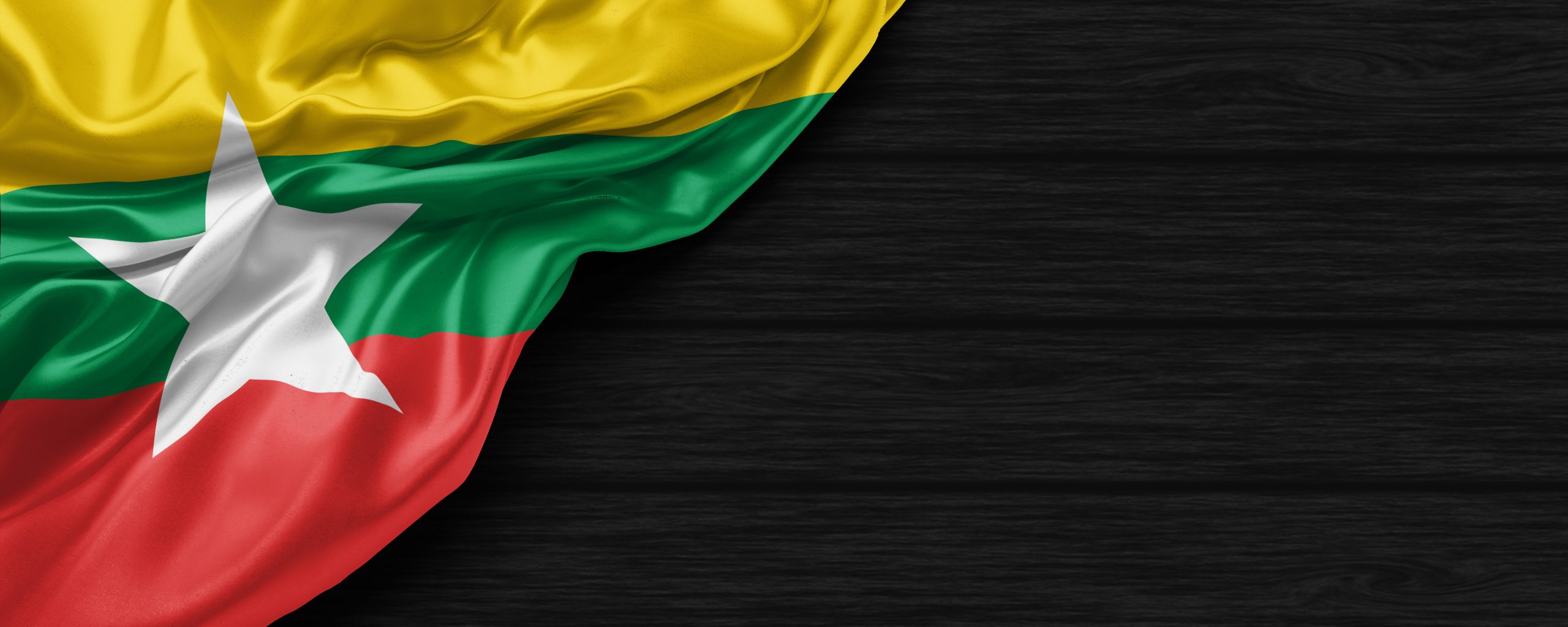
Myanmar has endured decades of conflict driven by ethnic divisions, military rule, and struggles for democracy. Since independence in 1948, civil wars have raged between the military and ethnic armed groups. The situation worsened after the 2021 military coup, leading to mass displacement, economic collapse, and severe human rights abuses, including killings, arrests, and sexual violence.
The Rohingya in Rakhine State have long suffered systematic discrimination and statelessness. In 2017, a brutal military crackdown forced over 700,000 to flee to Bangladesh amid mass killings, sexual violence, and village destruction—acts the UN calls ethnic cleansing, with some experts labelling it genocide.
Today, most Rohingya remain in refugee camps in Bangladesh, while those still in Myanmar continue to face severe restrictions and human rights violations.
Sexual violence as a weapon of war
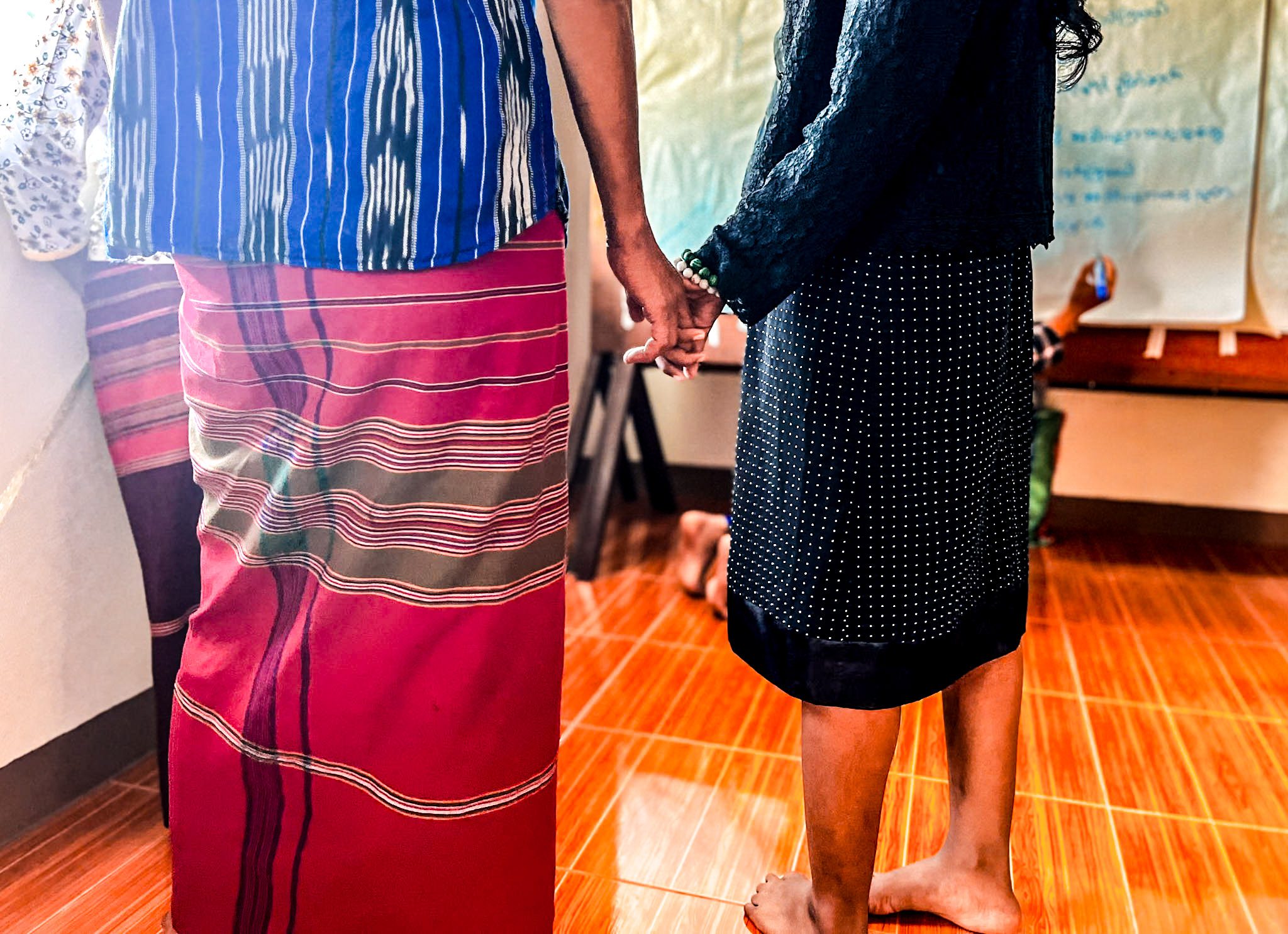
Conflict-related sexual violence in Myanmar has been a long-standing and deeply entrenched issue, compounded by high levels of stigma and fear of retaliation. These issues have prevented survivors from speaking out.
Since the 2021 military coup, the situation has deteriorated further, with political activists, pro-democracy students, and supporters subjected to sexual violence in arbitrary detention—including at least 13 documented cases where victims were raped and subsequently killed.
In the case of the Rohingya, sexual violence was systematically perpetrated before, during, and after the clearance operations in August 2017.
Women and girls remain particularly vulnerable, caught in the ongoing clashes between the Arakan Army and the military junta, where sexual violence continues to be used as a weapon of war. As one survivor described it:
“I don’t know what hell looks like, but we have seen it on Earth.”
After 18 months of groundwork and extensive consultations with over 100 survivors and more than 50 local organisations and experts, the Mukwege Foundation and its partners achieved a groundbreaking milestone—bringing together Myanmar survivors and supporting them in establishing three networks.
Consultations made it clear that survivors have urgent and multifaceted needs. They face severe physical and psychological trauma, lack access to medical and mental health services, and experience deep social stigma, often leading to isolation.
One major consequence is the economic hardship survivors of conflict-related sexual violence face due to displacement and exclusion.
In this context, survivor networks play a life-changing role in addressing the needs of survivors. By coming together, survivors can break the isolation, creating a safe space for mutual support and solidarity. This is the transformative power of national survivor networks.
Survivors leading the way: three newly formed survivor networks
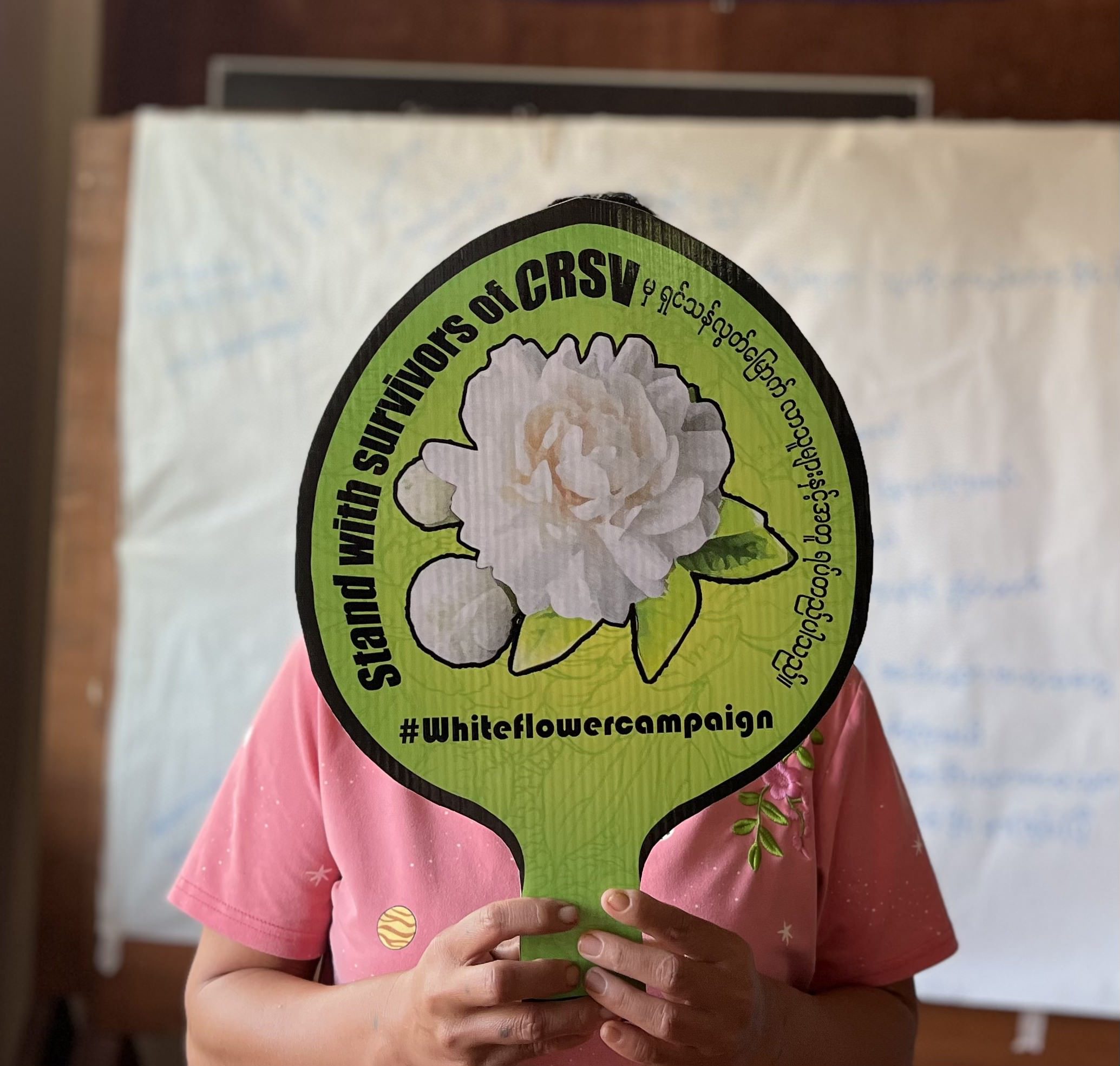
USILA
Usila is a network of survivors from the Rohingya community in Cox’s Bazar, Bangladesh.
“Usila,” meaning “medium” or “agent” in Rohingya, symbolizes their role in fostering solidarity, inner peace, and change for their communities
Established in May 2024, it provides a safe space, mutual support, and a platform to advocate for survivors’ rights. Their slogan, “Together we can raise our voice,” reflects their mission.
Survivors United for Rights and Justice (SURJ)
SURJ is a network of survivors in Mae Sot, Thailand, mostly former political prisoners who suffered sexual violence in detention for their activism in Myanmar.
The network provides a space for survivors to support each other and advocate for justice and equality while navigating the challenges of living undocumented in Thailand.
It was established in November 2024, stimulated by network-building workshops held by the Mukwege Foundation. When asked about the impact of these workshops, a network member says:
“I’ve formed new friendships here, and I no longer feel lost or alone. This workshop has changed how I view my place in this fight. Now I have a new mindset, I feel lighter from carrying the baggage.”
Survivor Network in Mae Hong Son
In November 2024, a group of Karenni survivors in Mae Hong Son, Thailand, forcibly displaced by conflict in Myanmar, expressed their motivation to form a network.
Their vision is to end CRSV in Karenni State and support fellow survivors. For many, joining the network-building workshops was a rare chance to break isolation, find solidarity, and begin rebuilding their lives.
A holistic, compassionate form of care for CRSV survivors
In collaboration with national partners, the Mukwege Foundation also started to provide mental health and psychosocial support (MHPSS) and safe spaces for members of the networks.
Ongoing conflict and displacement in Myanmar worsen trauma, stigma, and isolation. To address this, the Mukwege Foundation coaches frontline responders in MHPSS and supports grassroots organizations to prevent secondary trauma among staff.
Strengthening local capacities for trauma-informed care remains vital for the long-term healing and recovery of survivors of conflict-related sexual violence.
“May we flourish and thrive beautifully”: together, towards a brighter future
Moving forward, the three newly formed networks are now planning on expanding their reach by identifying and supporting more survivors of conflict-related sexual violence. Through their initiatives, they strive to help survivors rebuild their lives, reintegrate into society, and seek justice.
On a global level, two network representatives will join SEMA, the Global Network of Survivors of Wartime Sexual Violence. Through their participation in SEMA, they hope to amplify the survivors’ voices on an international stage and foster international support.
By joining forces, the three networks will continue to grow their capacities and support more victims and survivors, break the cycle of violence and pave the way for accountability and healing.
“In the future, I don’t want the next generation to experience what I went through.” – Survivor in Mae Hong Son
As an international rights-based, survivor-centred organisation working to change the global response to conflict-related sexual violence, the Mukwege Foundation is committed to continue supporting survivor networks in achieving both their immediate needs and long-term goals.
Thank you
Our work in Thailand and Bangladesh is possible with the support of our partners Legal Action Worldwide, ALTSEAN-Burma, and the Chin Association of Maryland, as well as of key local partners, the New Myanmar Foundation, Karenni Women’s National Organization, Kayan Women’s Organization and Serenity Counseling.

